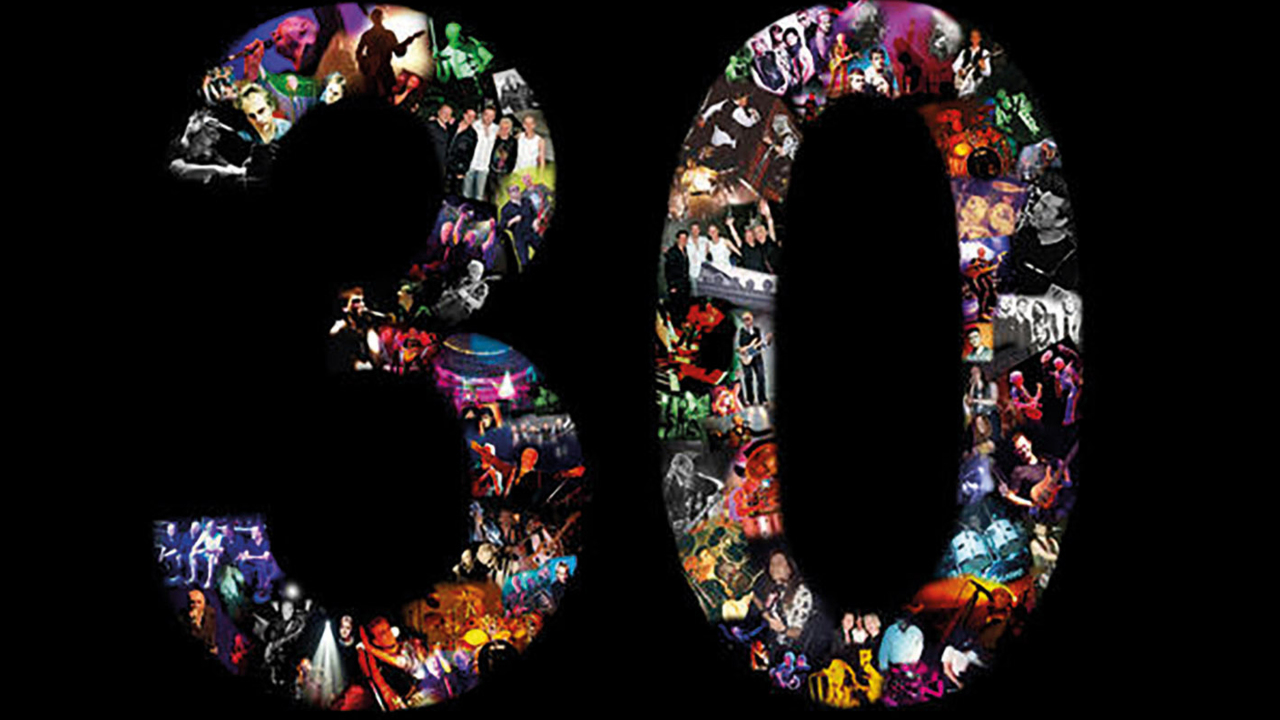Galahad have been really getting into their 30th anniversary celebrations, and alongside the birthday reissues and concert DVDs, a compilation album just had to happen.
In-keeping with their recent series of EPs featuring re-versions and remixes of some of their finer moments, most of When Worlds Collide comprises recently re-recorded versions of older, fan-favourite material.
The first disc of this two-CD set contains 10 vintage tracks re-recorded in 2015 especially for this release. Most of the nine tracks on the second disc are also re-recorded efforts, but this time from 2012 and 2014, all of which were previously released on EPs or as bonus tracks. There’s method in this particular tactic, as the material gains a much more consistent feel. Stripped of any dated production, the older tracks feel more contemporary, and the band themselves have matured and improved considerably over the years.
They’ve matured and improved so much over their 30 years.
That said, the evolution of the band’s sound can still be traced. There is a world of difference between the overt Marillion influence of the early songs and some of the more recent material on the second disc. Some of this aforesaid Marillion feel undoubtedly comes from Stuart Nicholson’s voice, which at times bears an uncanny resemblance to Fish’s, but there are musical nods aplenty as well. The excellent Dreaming From The Inside is like a mix of Lavender, Cinderella Search and Forgotten Sons, all contained in six astonishing minutes. Early classics still retaining their power include the opening Lady Messiah, with its echoes of Rush, and also The Chase. For completists, there is even a 30 year-old piece, City Of Freedom, which has never been released before in any form, and extremely strong it is too.
The second disc is the better of the two, with a couple of real standouts among the more recent material: Empires Never Last, with its massive chorus almost bringing to mind a prog rock Dio, and the beautiful closer This Life Could Be My Last, with its suitably epic coda. The 2012 reworking of old favourite Sleepers is also a triumph, retaining all of the song’s sense of claustrophobic Cold War paranoia across its 14 minutes. The more metallic Guardian Angel would surely be massive had it been recorded by, say, Porcupine Tree.
For far too much of their three-decade career, Galahad have flown under the radar. This is partly due to their lack of a strong identity in their early days, but mainly it’s a case of timing: arriving too late for the first flowering of neo-prog, they were always something of a ‘band out of time’. Hopefully this well-considered, well-executed release can redress that situation. They certainly deserve it.
